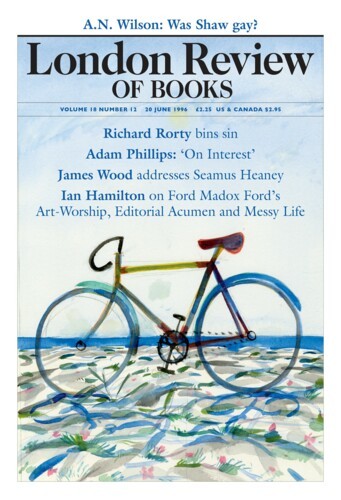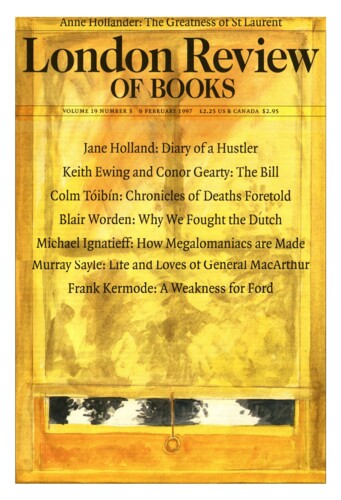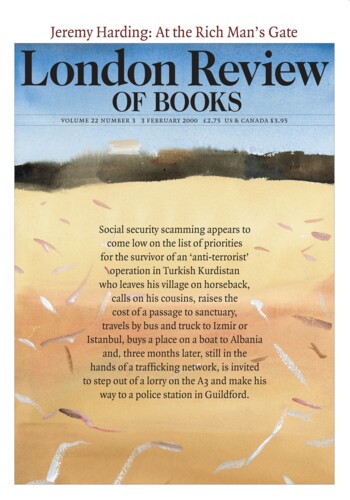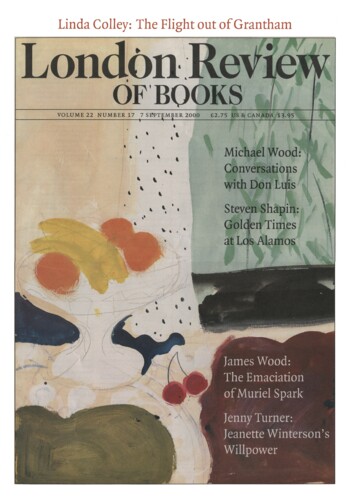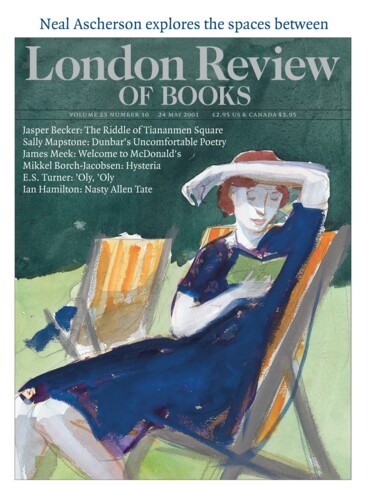‘The Sun Says’
Paul Laity, 20 June 1996
Whether the General Election takes place at the end of this year or the beginning of next, the Conservative Party’s campaign will focus on three issues: taxation, crime and Europe. In this it will be abetted by Britain’s most popular daily newspaper. The Sun, as we know, offers the extreme populist version of right-wing policy and, because of the scale of its readership, is considered by politicians and the media to be an important determinant of voters’ attitudes. TV and radio presenters ask politicians for reactions to the paper’s leader column, ‘The Sun Says’; ministers speaking in the House of Commons use the same phrases as the editorials. ‘Small government’ and law and order have long been crusades of British tabloids, but now Tony Blair, sensitive to popular priorities after Labour’s four successive electoral defeats, also feels that Sun readers need courting. Not for nothing did he travel to Hayman Island, Australia to address News Corporation executives; and not for nothing is he keen frequently to publish articles in the Sun.
